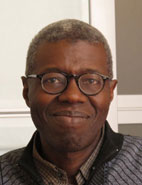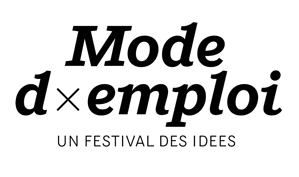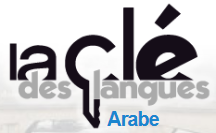Pluralism and Tolerance: Philosophers, Mystics and Religions
Souleymane Bachir Diagne (Senegal), philosopher and specialist of the history of sciences and Islamic philosophy, has taught at the University of Dakar, before emigrating to the USA where he teaches first in Chicago, then at Columbia University (New York). In 2013, he presides over the Concertation Nationale pour l’Avenir de l’Enseignement supérieur in Senegal (CNAES).
Comment philosopher en Islam ? (Philippe Rey, 2013)
This is how Avicenna continues – in what could be described as a philosophical translation – the Islamic story of the prophetic ascension which saw the Messenger of Islam travelling across the heavens on a mythical steed, guided by the angel Gabriel, to his meeting with God. In fact, in Avicenna’s interpretation, the angel can be interpreted as the agent intellect that illuminates and guides our human intellect along the path to make it the same as his own. Therefore, the prophetic voyage across the heavens is understood as the voyage undertaken by the perfect, complete human being (homo perfectus) to reach the most distant point of his most elevated faculty that then reveals the essential truths face to face with the Divine.
But, while the mystic’s ascension towards the world of intelligible realities is only of significance for the him or herself, the Prophet (who is therefore the model for what Henri Bergson called the true mystic whose experience is not simple contemplation but translates itself into a transformation of the world) has – himself – the mission and responsibility of returning the realities and the effect they should have on our lifestyles to humanity. He should therefore translate that which is beyond all expression – because, by definition, the intelligible cannot enter into the perceptible, the eternal into the temporal, the infinite into the finite – into all languages spoken by human beings. However, it is simultaneously impossible and essential that the “descent” of the message proceeds and it is religion that has its origin in this descent. The prophetic faculty, which reached perfection in the Messenger, is also doubled in his case by an extraordinary imaginative capacity because of the necessity for putting what is purely intelligible into tangible words, images and stories.
One consequence clearly revealed by philosophers like Al Fârâbî and the Andalusian Ibn Tufayl (12th century) is that, although essential truths are the same, their translation into positive religions will inevitably be different, pluralist. Therefore, in his philosophical fable Hayy Ibn Yaqzan, Ibn Tufayl recounts how the eponymous hero of the book combats the lack of understanding and hostility of the established, positive religion by trying to make the people rediscover the sense of truth that the “letter of the religion” strives to translate. Thus, the philosophers consider that, in their pluralism, positive religions aim at all the essential truths that make up their transcendental unity and therefore call for a spirit of openness and tolerance signifying an authentic respect for the different manners in which these truths manifest themselves. Philosophers and mystics, because they are involved in metaphysics, are more inclined to understand that pluralism is not relativism and that tolerance is not the simple acceptance of the translation/tradition of the other but an interest in, and genuine respect for, the manner in which the essential truths manifest themselves in this tolerance.
Does this mean that only philosophers and mystics are capable of tolerance because they think and live with the aim of attaining these truths whose traditional forms, the religions, are so many translations? In other words: remaining solely on the level of positive religions, it becomes necessary to ask the question of whether they are naturally closed and incapable of accepting the truth of pluralism as a consequence of their own exclusive definition of salvation? These questions boil down to what is addressed to each religion individually: how much room does it give to pluralism deep down? It is thus not only a matter of a given religion committing itself, for it is certain that it itself is the only true one in a theology of (other) religions regardless of the sympathy that might be felt with them, but of examining its openness to the acceptance of others and to the acceptance that difference and divergence are in the natural order of things. It is therefore about understanding that, as stated in the Quran (5:48), if God did not to make a single community of you, it was to test you by the difference, that you rival each other in good deeds knowing that ultimately, when you return to Him, He will inform you of where you differ.
Cette ressource est publiée dans le cadre de la quatrième saison du festival "Mode d'Emploi", organisé par la Villa Gillet.
Pour citer cette ressource :
Souleymane Bachir Diagne, Pluralism and Tolerance: Philosophers, Mystics and Religions, La Clé des Langues [en ligne], Lyon, ENS de LYON/DGESCO (ISSN 2107-7029), janvier 2015. Consulté le 05/02/2026. URL: https://cle.ens-lyon.fr/arabe/litterature/classique-et-nahda/pluralism-and-tolerance-philosophers-mystics-and-religions



 Activer le mode zen
Activer le mode zen

 Du 16 au 29 novembre, penseurs, chercheurs, décideurs, entrepreneurs, acteurs de la vie publique et artistes iront à la rencontre du public, à Lyon, Saint-Etienne, Chambéry ou Grenoble, pour nous inviter à interroger le monde d’aujourd’hui en replaçant les sciences humaines au cœur du débat citoyen.
Du 16 au 29 novembre, penseurs, chercheurs, décideurs, entrepreneurs, acteurs de la vie publique et artistes iront à la rencontre du public, à Lyon, Saint-Etienne, Chambéry ou Grenoble, pour nous inviter à interroger le monde d’aujourd’hui en replaçant les sciences humaines au cœur du débat citoyen.